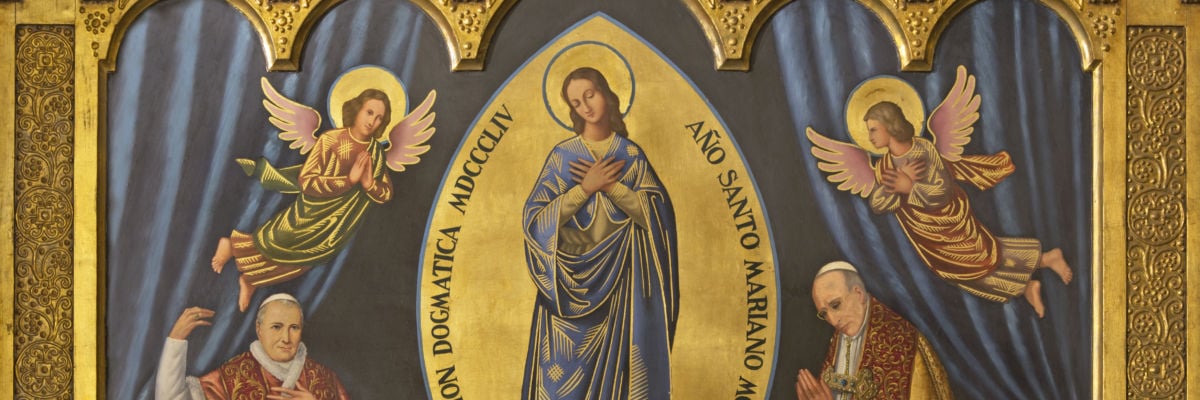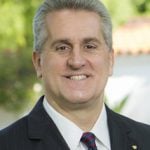
Tim Staples explains that anyone in full communion with Rome who attends an SSPX mass out of love for the traditional liturgy legitimately fulfills his Sunday obligation, and then gives a brief overview of the history of the society and its conflicts with the Church.
Transcript:
Host: Olga Marie, on Facebook Live, asks the following question: “Can we go to SSPX mass and be valid for our Sunday obligation?”
Tim: Right, well, because of their irregular status—although I don’t know if our inquirer is aware that there’s been more good news concerning movement toward full communion today; as many of our listeners know, our Holy Father during the Year of Mercy extended faculties, exercising his immediate juridical authority, he communicated faculties to hear confessions to all SSPX priests. That was really remarkable, and since the Year of Mercy ended, he did not take those away, so they they are yet extended. This is our Holy Father, he is the priest of mercy.
Well, we just—in fact I was just reading it before I came over here, I didn’t finish reading the whole letter from from the Vatican on this—but it states that our Holy Father is encouraging bishops around the world to grant faculties. It’s not a mandate, he’s not exercising his immediate juridical authority as he did with confession, but he’s encouraging the Ordinaries to extend faculties, where possible, to the SSPX to witness marriages. Now it does say in the letter, as I was just reading—I want to go back and really take it apart after this broadcast—but it did say that, because of the irregular status, the ordinary witness is a priest who is validly incardinated into the diocese; but where that is not possible, where a priest is not available, that sort of thing, he’s encouraging them to extend faculties to SSPX priests. So it’s not—it’s not like the confession, but it is extending—encouraging bishops to extend faculties. So it’s more movement, I think, in a good direction.
Now, as far as going to masses…again, because of their irregular status, you know, people should go to parishes where the priest is incardinated into the diocese. However, the Church has been, you know, bending over backward for the SSPX and those who love the traditional mass so that a permission has been given, for those who love the the Latin mass, to attend those those parishes. So, you know, it’s again a sign that we’re moving toward—and I think it will be an exciting day, I pray that that day will come soon, where we will have—will no longer have to talk about this irregular status any longer; but those who are attending SSPX masses because they love the Latin liturgy, they are not, you know, dissing Vatican Council II or anything like that… are not sinning. You know, the Church is not saying that you’re in sin if you go to those masses.
There are other things that have to be taken into account, though. It doesn’t mean you’re free to reject all of Vatican II. That’s one of the big sticking points concerning full communion with the SSPX, you know, they have to acknowledge that Vatican II is a valid ecumenical council. But I happen to know people who attend those masses from time to time because they love the traditional liturgy, they’re not available a lot of times very generously in a particular diocese, and they’re certainly not in sin.
Host: And SSPX, Society of St. Pius the 10th.
Tim: The 10th, correct.
Host: And why—I—maybe I should know this, but why Pius X? What about him is…
Tim: Yeah well, I think it was a priestly fraternity that was started in France before there was a schismatic act. It was simply a group of seminarians, later priests—I believe it was seminarians and priests back in about…if memory serves, about 1972, a number of these young seminarians and such approached Archbishop Lefebvre, who was retired at the time, and they asked him, because of the post-Vatican II craziness that was going on, with the promulgation of the Missala Vermanum, the Mass of Paul VI, as it’s called, and the abuses that were going on, these folks came to Bishop Lefebvre and said, you know, “We need you to come out of retirement and help us,” and he did.
And at the outset, because he was not an ordinary, he was a retired bishop, he did not have a diocese, he had to get permission from the local ordinary to begin the SSPX, which he was granted. At that time he was in full communion with the Church; they were just concerned. But—so St. Pius X of course was a reformer bishop who, you know, wrote wonderful documents, you know, the syllabus of errors against modernism and so many things, so it was—a pope like that was a perfect fit for them.
But what happened was, they started to go extreme, pretty early on, to the point where they ordained some priests illicitly, Pope Paul VI got involved; that was not excommunicable, but it was a grave sin. But then what ends up happening is there’s back and forth between Paul VI and the SSPX, they were suspended “a divinis,” that is, their faculties were removed, and they continued in disobedience, and this back and forth went on until Pope Paul VI died in 1978.
John Paul picked it up—and really wanted to have a reunion—he picked up the dialogue, Cardinal Ratzinger, of course, involved when he became Prefect of the CDF. But unfortunately, it took a bad turn in 1988, when the SSPX ordained four—or, Bishop Lefebvre, he ordained four bishops illicitly, and that is matter of excommunication, automatically, latae sententiae, and so that started—but the amazing thing is, I mean, you really sympathize with the SSPX and the craziness that was going on and such; but you also see in this whole thing how the Popes have reached out and continued to reach out. John Paul—he was forced, I mean, he didn’t do anything. He simply declared what Canon law already stated: that was a latae sententiae excommunication; but the dialogues immediately were started. John Paul established the Ecclesia Dei, which was a—its specific task was to be the mediator to try and get the SSPX back.
And now here we are, you know, there’s been lots of trials and failures and semi-successes and such, and now it’s Pope Francis–some might think the most unlikely candidate—is the one who really seems to be moving the ball forward like none other.
So anyway, that’s just a brief thumbnail sketch.



